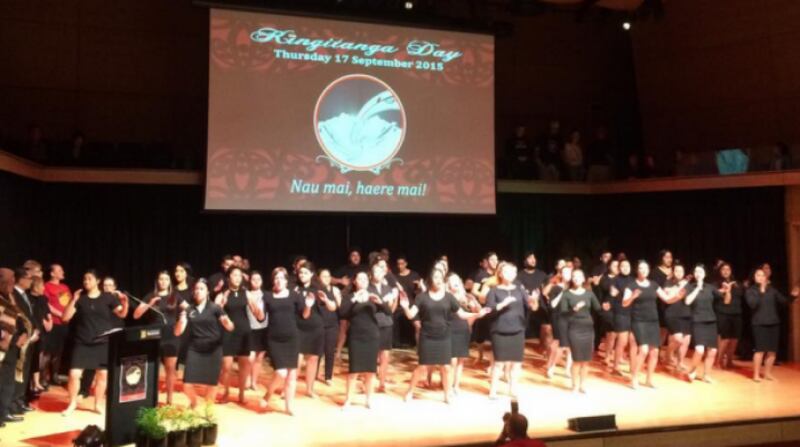Waikato University celebrations are well underway for this year's 7th annual Kingitanga Day.
Waikato University Senior Lecturer of Māori protocol Te Kahautu Maxwell says that bringing understanding and awareness of the Kingitanga Movement and research on issues concerning Māori, to students and the wider community is the focus of celebrations.
Established in 2009 to honour, recognise and strengthen the University's connection with the Kingitanga. As an added honour the inaugural Kingitanga Day was held on the birthday of King Tūheitia, the 21st of April.
Te Kahautu Maxwell says, "The celebrations began in 2009 with a request from the University of Waikato to King Tuheitia to connect the university to the King Movement."
Tom Roa says, "It's about celebrating all our Māori gatherings, such as poukai celebrations which are hosted by Kokohinau Marae in Te Teko and Huria Marae in Tauranga."
It's a free event, where normal lectures are cancelled for the day and every faculty across the University hosts lectures regarding the Kingitanga or research topics regarding Māori. Students and the wider community are able to attend, listen, learn and participate in the various lectures and workshops throughout the day across campus.
Hillcrest High School student, Amaliyah Leef says, "For me it's a privilege to be here, because I'm from Ngāpuhi and Ngāti Kahungungu and I don't know much about the Kīngitanga, so I'm just soaking it all in."
This year’s keynote address was by leading Māori Military Historian, Dr Monty Soutar, ONZM, called Whitiki! Whiti! Whiti e! – which was the call to arms used to encourage Māori to enlist in World War 1 - taken from traditional pā warfare.
Dr Soutar says he felt privileged to speak at the event, and was aware of the importance in understanding the King Movements stance regarding the early wars.
Other speakers of the day include Waikato University Senior Lecturer Tom Roa, who spoke about the film Ngā Rā o Hune which told the story of men who were forcibly sent to Narrow Neck Military Camp. The whānau share their memories of their tūpuna and help discover what happened to those supporters of the Kīngitanga who refused to fight for an empire on the other side of the world.

